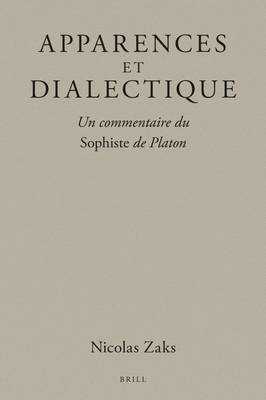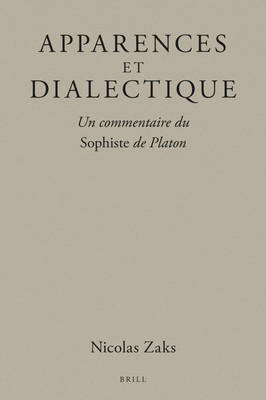
- Afhalen na 1 uur in een winkel met voorraad
- Gratis thuislevering in België vanaf € 30
- Ruim aanbod met 7 miljoen producten
- Afhalen na 1 uur in een winkel met voorraad
- Gratis thuislevering in België vanaf € 30
- Ruim aanbod met 7 miljoen producten
Zoeken
Omschrijving
Dans le Sophiste de Platon, un mystérieux étranger venu d'Élée entreprend de définir méthodiquement le rival le plus farouche du philosophe, le sophiste. Sa définition est cependant interrompue par une tentative de réfuter l'ontologie de Parménide. La signification propre de cette réfutation et sa relation exacte avec la chasse au sophiste demeurent très controversées dans la littérature secondaire. Ce livre propose un commentaire suivi du dialogue montrant comment la distinction, souvent négligée, entre dialectique et apparences permet de trancher dans les controverses suscitées par le Sophiste, tout en restaurant l'unité et l'originalité profondes de la pensée de Platon.
In Plato's Sophist, a mysterious Eleatic Stranger, the main character of the dialogue, undertakes a systematic definition of the philosopher's fiercest rival, the sophist. His hunt for a definition of the sophist, however, is interrupted by an attempt to refute the ontology of Parmenides. The philosophical significance of this refutation and its exact relationship to the sought-after definition remains a matter of great scholarly dispute. This book, by means of a running commentary on the dialogue, argues that the oft-neglected distinction between dialectic and appearances is not only the key to solving this and other exegetical conundrums, but also reveals the unity and originality of Plato's argument in the Sophist.
In Plato's Sophist, a mysterious Eleatic Stranger, the main character of the dialogue, undertakes a systematic definition of the philosopher's fiercest rival, the sophist. His hunt for a definition of the sophist, however, is interrupted by an attempt to refute the ontology of Parmenides. The philosophical significance of this refutation and its exact relationship to the sought-after definition remains a matter of great scholarly dispute. This book, by means of a running commentary on the dialogue, argues that the oft-neglected distinction between dialectic and appearances is not only the key to solving this and other exegetical conundrums, but also reveals the unity and originality of Plato's argument in the Sophist.
Specificaties
Betrokkenen
- Auteur(s):
- Uitgeverij:
Inhoud
- Aantal bladzijden:
- 412
- Taal:
- Frans
- Reeks:
- Reeksnummer:
- nr. 12
Eigenschappen
- Productcode (EAN):
- 9789004533066
- Verschijningsdatum:
- 2/02/2023
- Uitvoering:
- Hardcover
- Formaat:
- Genaaid
- Afmetingen:
- 157 mm x 239 mm
- Gewicht:
- 698 g

Alleen bij Standaard Boekhandel
+ 729 punten op je klantenkaart van Standaard Boekhandel
Beoordelingen
We publiceren alleen reviews die voldoen aan de voorwaarden voor reviews. Bekijk onze voorwaarden voor reviews.








